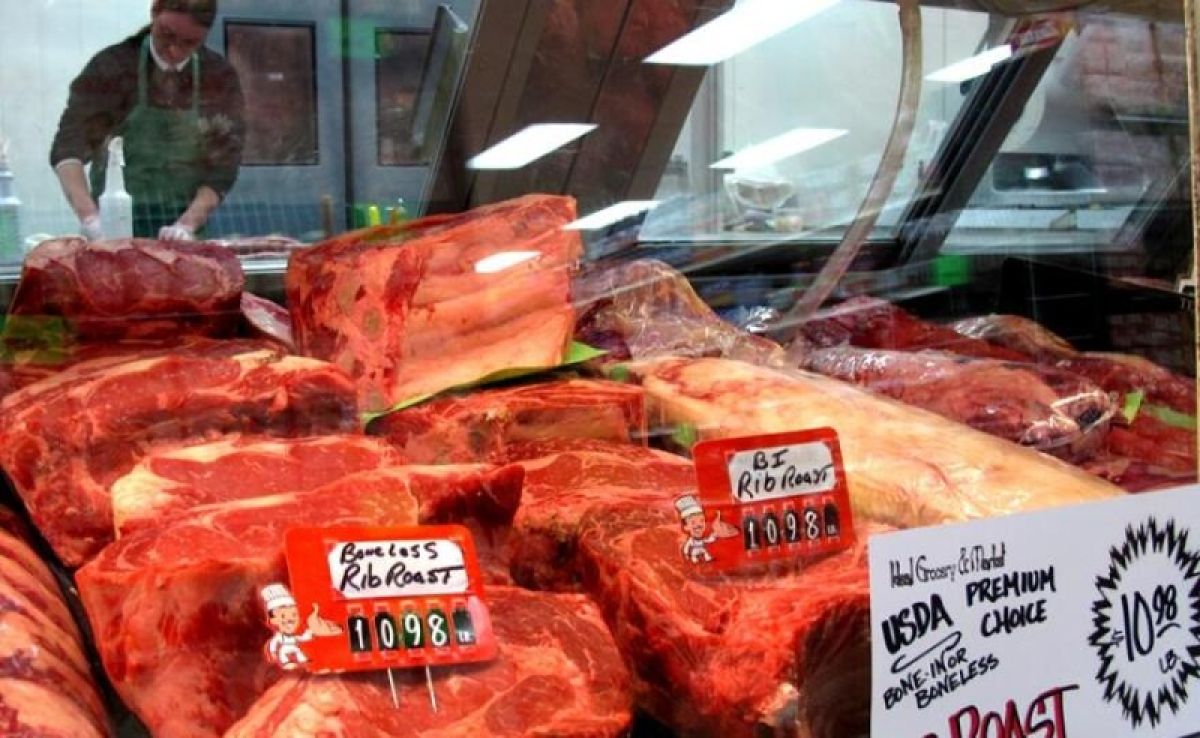
( File: Grant Gerlock / Harvest Public Media)
A meat substitute trade group contends an Oklahoma food-labeling law violates the U.S. Constitution and undercuts the industry, so it's suing in federal court.
The state law requires meat alternatives to be clearly labeled as plant-based if the product is not derived from an animal. The law follows a model adopted in a number of Midwestern states, including Missouri and Kansas, that have similar labeling requirements for plant-based products. It requires a disclaimer as large as the product’s name that the food is plant-based.
The Plant Based Foods Association claims that the law is unconstitutional, anticompetitive and burdensome. Nicole Negowetti, the group’s policy director, said the association has opposed similar laws in Kansas, Texas, California, Mississippi, Maryland and Wisconsin.
“Arguments by animal meat lobbyists that consumers are confused by plant-based food labels are simply disingenuous,” Negowetti said in a statement. “Plant-based meat products are clearly marketed and packaged, do not deceive any consumers, and comply with federal regulations under the federal Food, Drug and Cosmetic Act.”
Oklahoma’s cattle and pork associations backed the law that took effect last year.
“We want to be very clear that while the Plant Based Foods Association is bringing this challenge forward, we’re very proud in Oklahoma to be a protein source,” Kylee Deniz, executive director of the Oklahoma Pork Council said. “And that (protein) being pork, real pork, with just one ingredient on the label: pork.”
Michael Kelsey, the executive vice president of the Oklahoma Cattlemen’s Association, said the meat industry pushed for the law to protect consumers from confusion.
“What we’ve seen is companies who are trying to deceive consumers with plant-based products and try to sell those products as a meat alternative, but not doing so with a clear labeling,” Kelsey said.
Ben Abel, a lawyer that specializes in food labeling law, said similar laws in other states have fared poorly in the courts.
“If a state's attempts at legislating said you could not use a term at all, those were likely to be enjoined,” Abel said.
But Oklahoma and Missouri didn’t outright ban the use of certain terms. Now the Plant Based Foods Association’s complaint has been updated to cite bans on states restricting interstate commerce.
“What they’re saying is, ‘If Oklahoma says we have to have labels that have the word ‘plant-based,’ just as large as the word hot dog, but California doesn't require us to have the term ‘plant-based’ just as large as the term hot dog, what are we supposed to do?’” Abel said.













